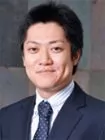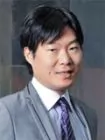Labor
Japanese Ministry Publishes Guidelines for Employers to Manage Employees' Working Hours
On January 20, 2017, Japan's Ministry of Health, Labour and Welfare issued the "Guidelines for Employers to Appropriately Manage Their Employees' Working Hours" ("Guidelines"). While the Guidelines basically follow the "Standards for Employers to Appropriate Manage Their Employees' Working Hours" issued by the Ministry of Health, Labour and Welfare on April 6, 2001 ("2001 Standards"), the Guidelines contain several new and noteworthy items.
The most noteworthy inclusions in the Guidelines are the provision of an interpretation of the term "working hours" and the provision of specific examples of working hours. According to the Guidelines, "working hours" means the time worked under an employer's directions and orders, even if the directions and orders are implied. The Guidelines also clarify that the following will be treated as working hours: (i) time spent changing clothes and cleaning up in the workplace under an employer's direction; (ii) waiting time; and (iii) time spent on training and education for which participation is required as part of an employee's job and time spent studying under a program designated by an employer as necessary to an employee's job.
As to the management of working hours, the Guidelines provide that, in principle, employers will monitor based on visual confirmation of working hours by the employer, or keep an objective record by using a time card system or a similar method. If an employer, in lieu of using either of the above methods, manages employee working hours by utilizing an employee self-reporting system, the employer must take certain measures to ensure appropriate management of working hours. Although the 2001 Standards also provided similar rules, the Guidelines require employers to take various additional measures to prevent the underreporting of working hours, such as requiring an investigation when there is a large gap between employee time spent in the workplace as indicated by objective data and self-reported working hours.
Companies with offices in Japan need to check on how their employees' working hours are managed and examine their compliance with the Guidelines. In particular, companies that use an employee self-reporting system to manage working hours should pay attention because the Guidelines require such companies to take extra measures as described above.
The Guidelines have been developed as one of the measures to reduce long working hours, which the Japanese government has been actively addressing recently. In addition, the Japanese government is also examining the introduction of a cap on working hours. Jones Day's Japan Legal Update will continue to report on the various legal developments in this area, including the issue of limiting working hours.
Privacy
Supreme Court in Japan Issues Decision on Request for Removal of Internet Search Results
In December 2015, the Saitama District Court granted a petition for provisional disposition that was filed against an internet search provider ("ISP") by an individual who had committed a crime in the past, in which the individual, based on a theory of moral rights or moral interests, sought the removal of certain internet search results displaying the URLs of websites on which articles containing facts about the crime were posted. The district court rendered its decision based on the finding that the individual has the "right to be forgotten" from society with respect to a past crime after a certain period of time. In an appeal proceeding related to a petition for provisional disposition, the Tokyo High Court reversed the Saitama District Court's decision. The pending decision by the Supreme Court attracted an increasing level of interest as to how the Supreme Court would treat the first decision by a Japanese court to recognize the "right to be forgotten." On January 31, 2017, the Supreme Court (third petty bench) affirmed the Tokyo High Court's decision.
In deciding the appeal, the Supreme Court addressed the legality of whether an ISP's provision of search results displaying the URLs of websites on which articles about an individual's private facts are posted. The Court determined that the factors relevant to the legal interest in keeping the facts from the public should be weighed against the rationale for providing the information that displays the URLs as a part of search results. If the legal interest in keeping the facts from the public is found to clearly outweigh the rationale for providing the information, then the individual may request the ISP to remove the information displaying the URLs from the search results.
The Supreme Court dismissed the individual's appeal, finding that the legal interest in keeping the facts concerning the crime from the public did not clearly outweigh providing the information in this particular case. The Supreme Court's decision did not refer to the "right to be forgotten," and the Supreme Court's position on the right has not yet been clarified.
Energy
Enforcement of Amendments to Japanese Renewable Energy Act to Come into Force
Amendments to the Act on Special Measures Concerning the Procurement of Renewable Energy by Operators of Electric Utilities etc. will come into force on April 1, 2017. The purpose of the amendments is to balance the promotion of use of renewable energy with the burden imposed on the public. As a result of the amendments, the procedural requirements for the production of electricity will be changed substantially for renewable energy plant projects that do not start the production of electricity by the enforcement date of the amendments. In addition, new measures, such as the submission of a business plan, will be required for renewable energy plant projects that do start the production of electricity by the enforcement date of the amendments. See our Commentary, " Amendments to Japan's Renewable Energy Act," for detailed information on the amendments.
The content of this article is intended to provide a general guide to the subject matter. Specialist advice should be sought about your specific circumstances.














